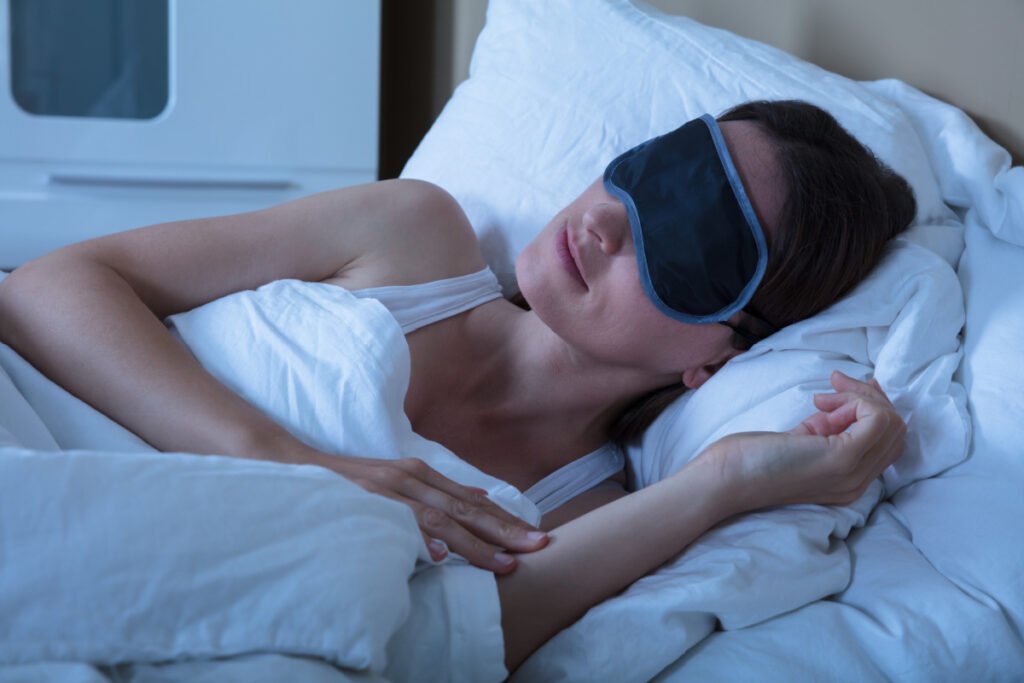Integrative medicine doctors continue to discover the impacts that lifestyle elements like healthy relationships, nutrition, and yes—sleep—can have on your longevity. But, getting a quality night of sleep can be difficult, with the draw of our blue light-emitting cell phone screens and the urge to utilize evenings for productivity. Today, one out of three Americans don’t get enough sleep.
To help you start improving your sleep today, we are sharing research-backed methods for a better night of rest.
Set alarms & follow a schedule
Going to bed and waking up at the same time every day, even on weekends, helps regulate your body’s internal clock and improve the quality of your sleep.

Block out light and sound
Your bedroom should be cool, dark, and quiet. Consider using earplugs, eye shades, blackout curtains, or white noise machines if necessary to create a space that is free of distractions.
Too little sleep increases inflammation, which is an open invitation for illness. The opposite is also true—being well rested has an anti-inflammatory effect that invites good health.
—Adapted from Tapestry of Health: Weaving Wellness Into Your Life Through the New Science of Integrative Medicine, Dr. Monti’s integrative medicine book
Exercise
Moderate aerobic exercise can help facilitate more deep sleep during the night. However, aim to finish your exercise for the day at least 2 hours before your bedtime, since exercising right before bed can stimulate endorphins and make it harder to fall asleep.
Avoid nicotine, caffeine, and alcohol
Nicotine, caffeine, and alcohol can all sabotage your sleep routine, so avoid them before bedtime. Caffeine and nicotine can keep you awake, while alcohol can interfere with your sleep cycle once you’re asleep.
- Most experts believe you need to cut off caffeine 6-8 hours before bed. I recommend 12. Switch to uncaffeinated after your first cup if you are used to drinking caffeinated drinks during the day.
- Stop drinking alcohol at least 4 hours beforehand to give your body time to metabolize it. (Official recommendations say to limit yourself to one alcoholic beverage a day if you are a woman or two if you are a man. I suggest no more than one regardless.)
- Quitting nicotine, in any form, is one of the top ways you can improve your health. If you are not ready to avoid nicotine altogether, however, aim to stop using nicotine products within four hours before bedtime for better sleep.
Eat dinner early
Try to have your evening meal be the lighter meal of the day, and avoid eating at least 1-2 hours before bedtime (or longer if you are prone to heartburn in the evenings). This allows your body to finish the digestion process before you need to fully rest for sleep. This also helps with other aspects of your health, like weight, blood pressure, and blood sugar.
Create a “wind-down” routine
Engaging in a relaxing activity (screen-free) before bed can signal to your body that it’s time to wind down. Some common options include reading, gentle breathing exercises, meditating, yoga, soft music, journaling, or taking a warm bath.
Research reveals that consistently poor sleep poses serious health risks, including a greater incidence of heart disease, diabetes, weight gain and cognitive impairment.
—Tapestry of Health: Weaving Wellness Into Your Life Through the New Science of Integrative Medicine
Treat any underlying conditions
If you snore, have restless legs, or experience a burning sensation in your stomach or esophagus, then you may have one of the common conditions that negatively affect sleep quality. Don’t put off getting help, as sleep is important for your overall health and longevity. Talk with your doctor about your symptoms and ask about treatment options.
When you are ready to commit to your whole-body well being, The Marcus Institute is your destination in Philadelphia & Villanova, PA. Dr. Daniel Monti and our team offer cutting-edge diagnostic tools and evidence-based treatments. Contact The Marcus Institute today to schedule your assessment and discover what you can do to improve your longevity!


